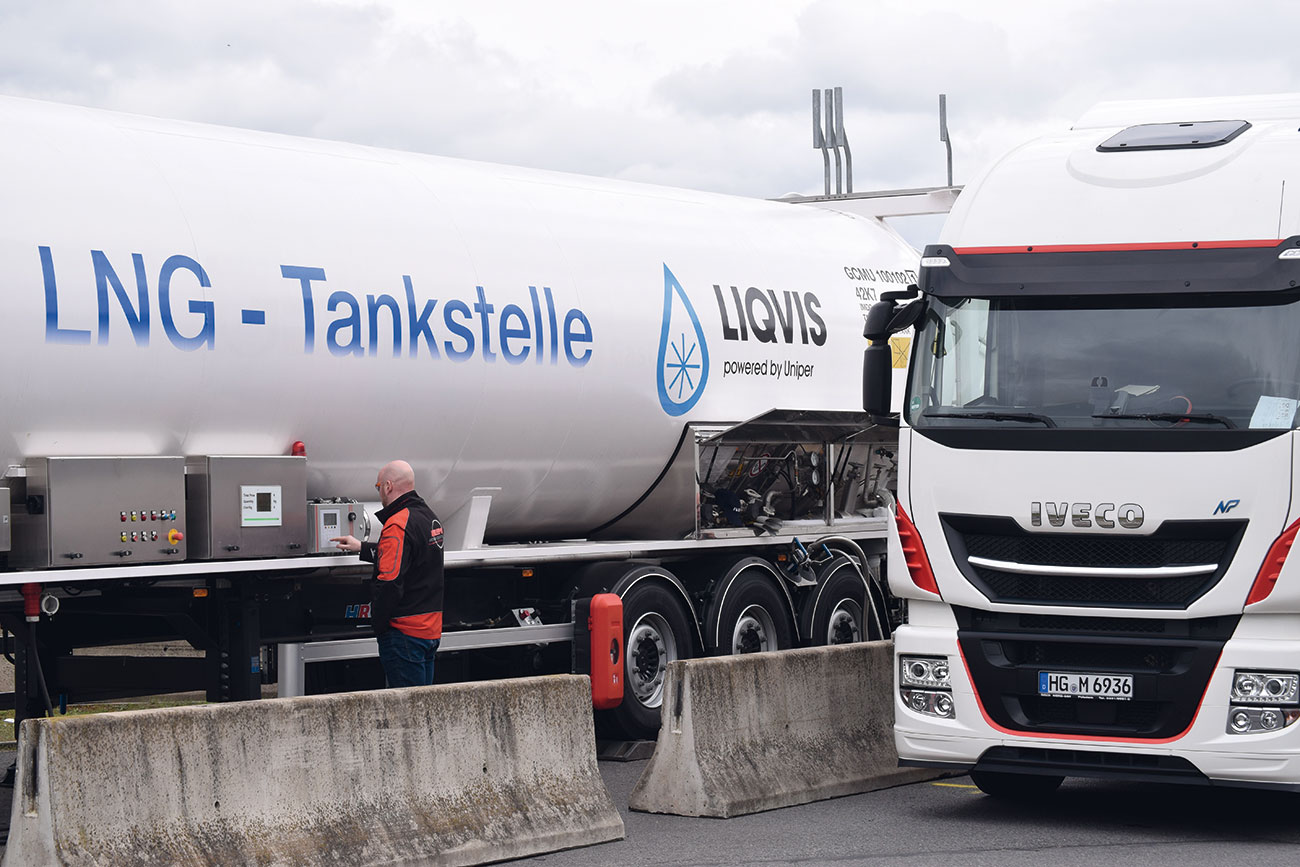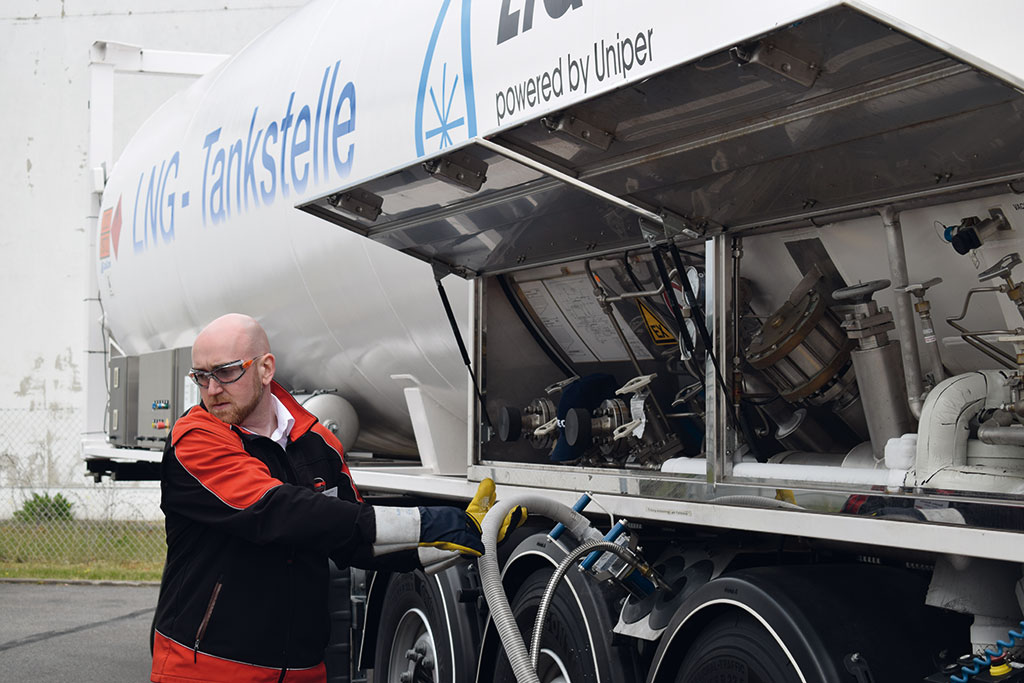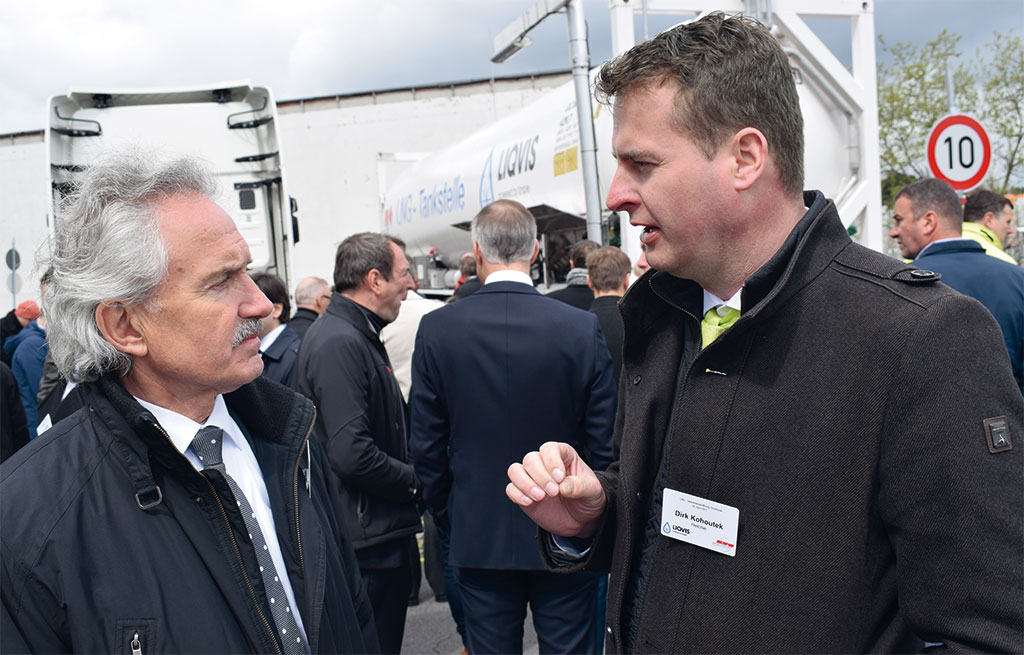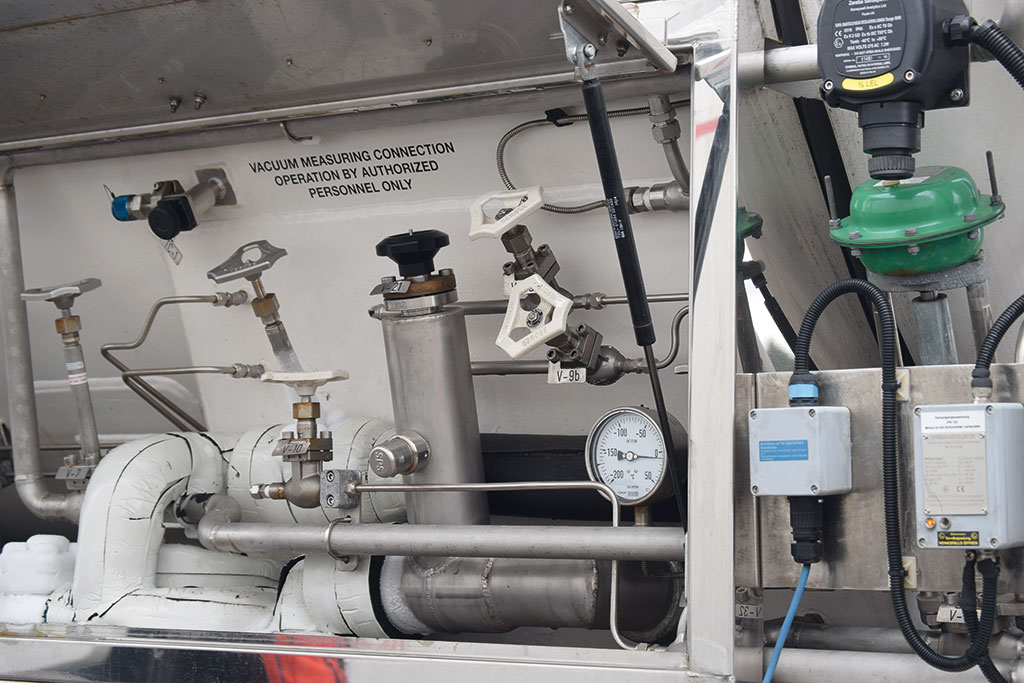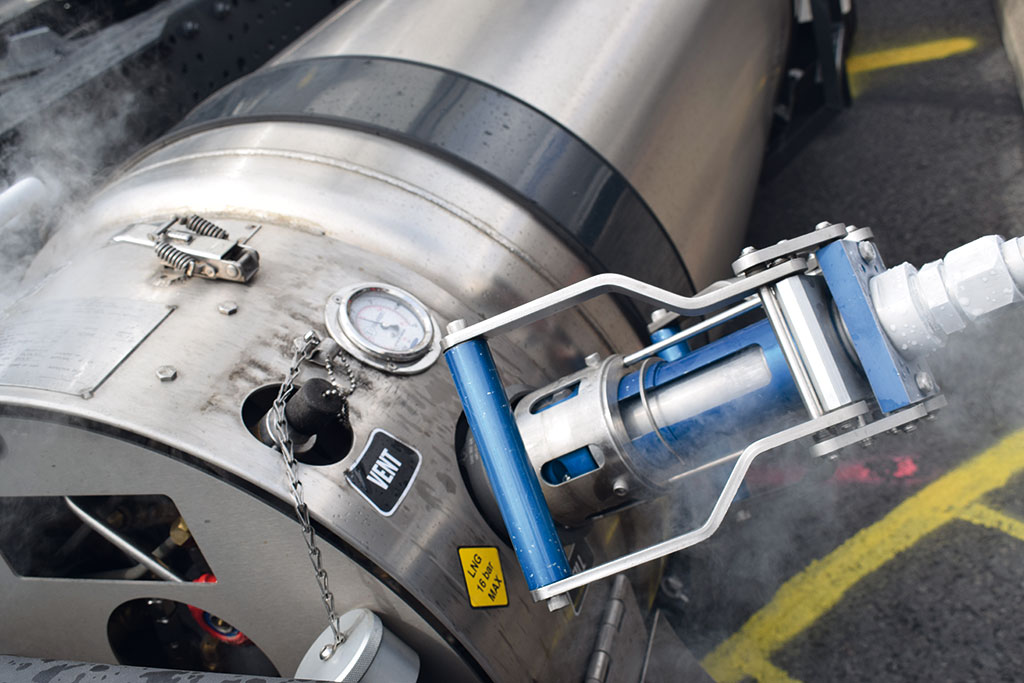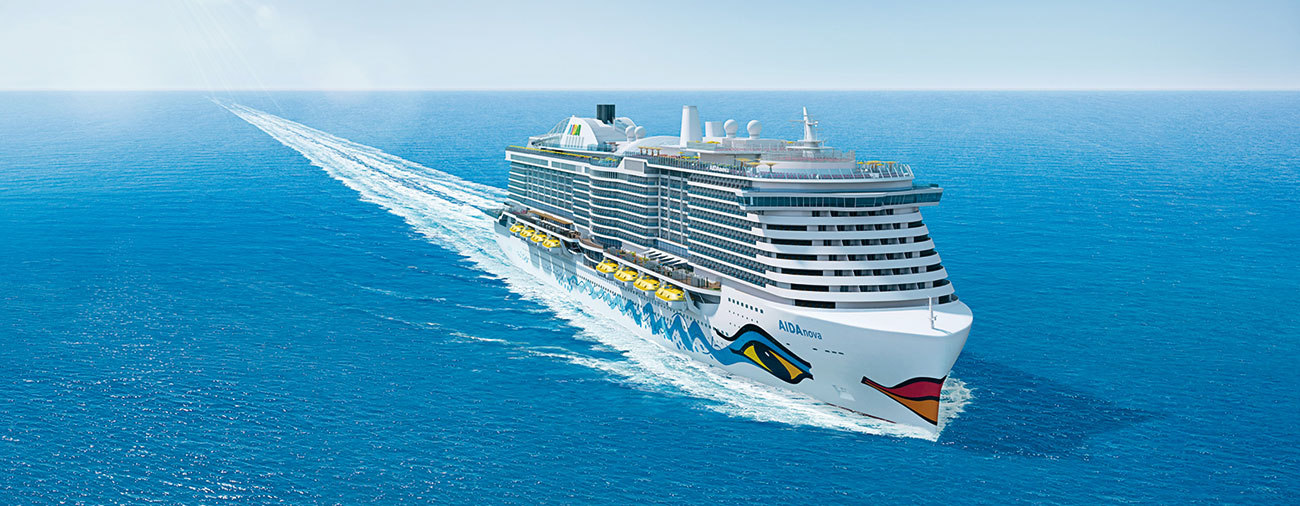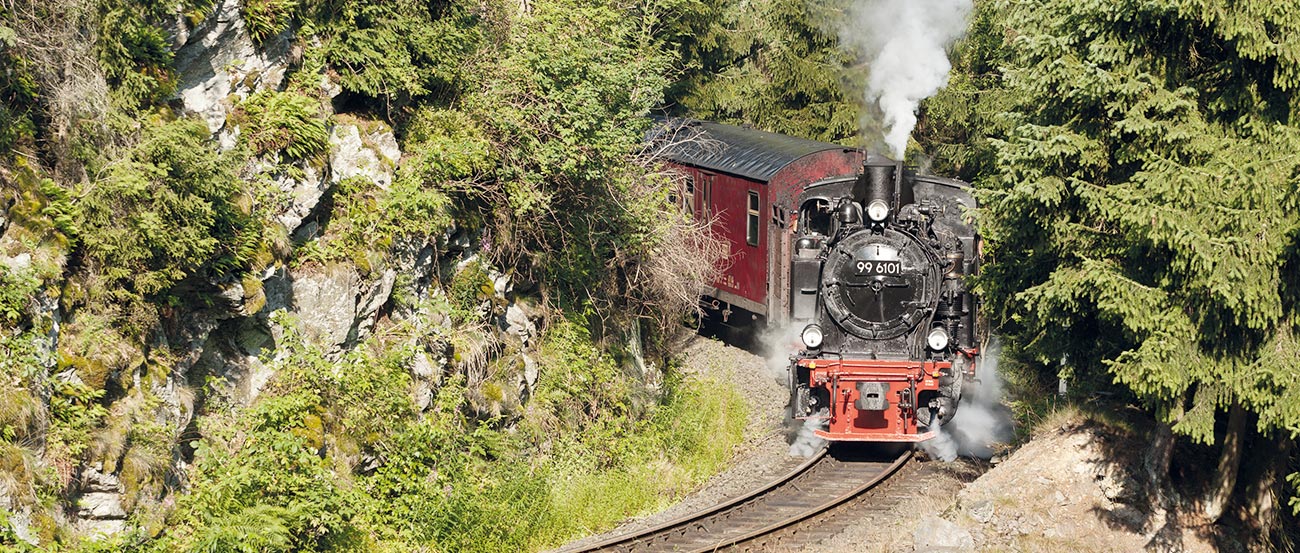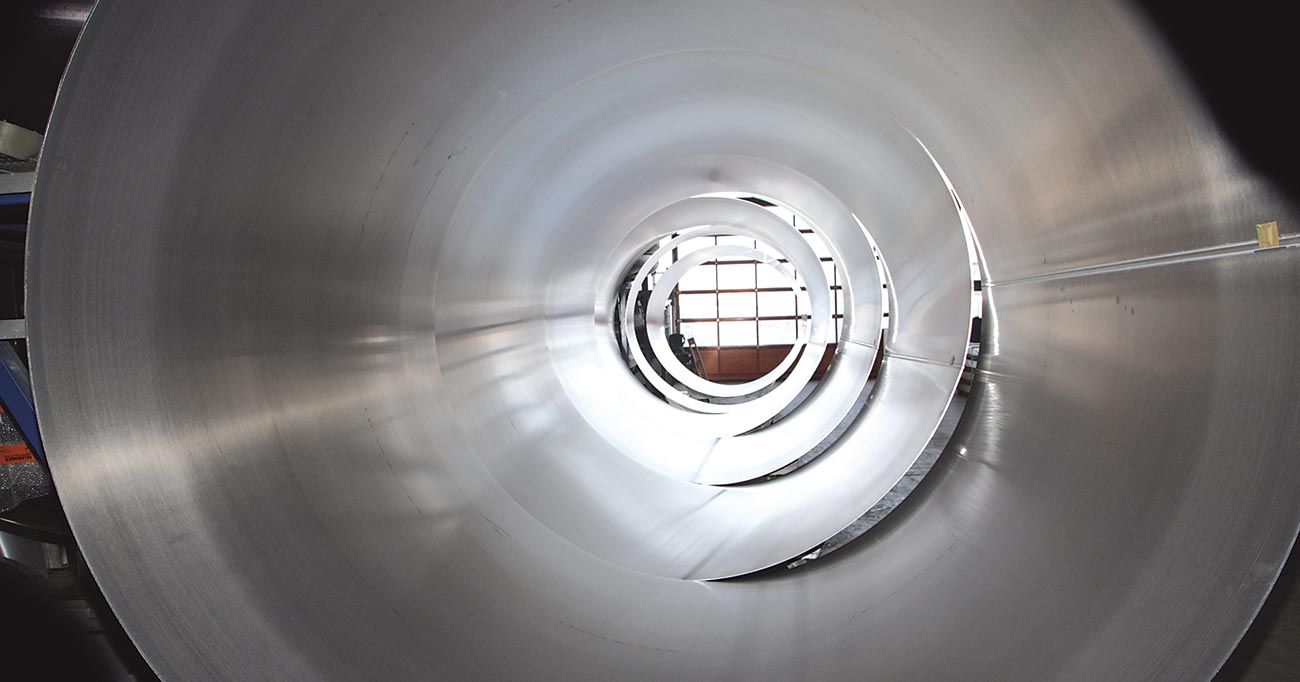LNG for trucks is gaining momentum
In summer 2017, vc wrote about the opening of a mobile LNG filling station for trucks in Berlin, at that time the second of that kind in Germany. The filling station trailer was built by the Dutch company Cryonorm with many valves by HEROSE. Today, two years later, we wanted to follow up: How did the supply conditions develop for LNG-operated trucks in Germany and Europe, and what was HEROSE’s share in this development? An update.
 The mobile LNG filling station near Berlin has turned into a stationary one (© Photo: Uniper)
The mobile LNG filling station near Berlin has turned into a stationary one (© Photo: Uniper)
The decision of the German government to exempt LNG-operated trucks from the road toll which took effect on the 1st of January 2019 was the latest triggering point for a surge in demand for these kind of vehicles. Companies like IVECO, SCANIA and VOLVO currently list 60 to 80 orders of that kind per month, in total there are more than 5000 LNG-operated trucks on the roads of Europe – in 2017 there were only 150. Apart from the toll exemption, there were other relief measures for transport companies who go for LNG-trucks: The mineral oil tax compared to diesel fuel is cheaper by more than half (22 instead of 47 cents ) – and the purchase of such a truck is subsidised with 12,000 Euro per vehicle.
And the development of LNG infrastructure also picks up speed. Two years ago, the Uniper-subsidiary Liqvis was the only active player on the market, yet in the meantime there are two other players on the pitch: Shell and the Berlin-based company Liquind 24/7. Market leader Liqvis plans to open a total of eight LNG filling stations in Germany by the end of 2020. Following the locations in Ulm and Berlin, another station was opened in Kassel in April; and in the course of the next 18 months, filling stations in Hamburg, Hannover, Munich, Cologne and at the Kamener Kreuz in Northrhine-Westfalia are planned to supplement the supply.
Maik Rensing, Senior Product Manager von Liqvis, told vc: “There will be another six filling stations in France and Belgium.” This expansion is subsidised with a total of 9.6 million Euro out of the EU-program “Connecting Europe Facility for Transport”, which provides the finance for an LNG-corridor (LNG Blue Corridor) along the main traffic routes in Europe.
Liqvis consider LNG a fully-fledged alternative in long-haul transport: “LNG is not just a bridge technology for e-mobility as many people think”, said Maik Rensing. “As opposed to E-trucks, there are hardly any limits in terms of reach.” With one tankful, a truck can go up to 1500 km.
In favour of LNG are also significantly reduced noise emission, less nitric oxides and less particulate matter. And the plans reach further. “Currently we are still operating with fossil natural gas”, so Rensing, “but the perspective is to use bio-LNG in the future – derived from biogas plants and as “Power-to-Gas” made from excess wind energy.”
New LNG filling station by Shell
With Shell, another player entered the pitch of the LNG filling station business. At the end of 2018, they opened a first station in Hamburg, four other locations in Germany are to be added timely while there are already seven in the Netherlands and in Belgium. By 2030 Shell expects more significant growth of LNG-operated trucks. While the electric mobility can support the reduction of emission in cars and vans, in the long run heavy-load traffic require more powerful combustion engines with larger reach. This is also the view of the German government. Guido Beermann, state secretary in the Federal Ministry for Traffic and Digital Infrastructure: “LNG plays an important role in the fuel strategy in our ministry.”
Another builder of LNG filling stations is the Berlin-based company Liquind 24/7, who in cooperation with the logistics operator KP Logistik have built a fixed LNG filling station each at the KP-locations (Mecklenburg-Vorpommern) and Wustermark (Brandenburg). KP Logistik have ordered 100 LNG-trucks from SCANIA. “This is the largest LNG-project in Germany so far”, said Philip Maximilian Braunschweig, Head of Company Development at Liquind. The start-up was founded in 2015 to develop a distribution structure for LNG all across Europe, receiving EU subsidies of 3.3 million Euro for that purpose.
Liqvis, Shell and Liquind mainly in Germany, other builders in other European countries: Good progress has been made already on the way to create a well-developed network of LNG filling stations in Europe. Until 2025, the four defined main routes for LNG trucks shall have one filling station at least every 400 kilometres. For a first sufficient LNG filling station network in Germany, experts reckon a need of about 10 stations; by expanding the network to 40 LNG filling stations, regional van traffic could also be supplied. In Germany, HEROSE, one of the worldwide market leaders of LNG valves, benefits from this growth. A longtime partner in the LNG process (LNG liquification) and marine business (Fuel Systems) is the Dutch company Cryonorm, a leading manufacturer of LNG filling stations in Europe. Sales Manager Jos Glorie: “The demand for our systems, especially in Germany, is currently very high.”
HEROSE Product Manager Dirk Kohoutek: “Another good customer of ours is GasCom, who installed the mobile LNG filling station in Berlin two years ago and who are still intensively active in the field. For the construction of one of the first LNG filling stations in Hamburg we provided several safety valves and gate valves in 2018. And we show a strong presence in the field of ISO containers in which the LNG can be transported worldwide on ships, railways and trailers so that the gas is available to customers all over the world.”
LNG filling stations: the start has been made (vc 2/2017)
Near to Berlin, Liqvis has opened a mobile LNG filling station – with valves from HEROSE
Reaching into the exhaust pipe has proven: it is spotless – and that after having run 25,000 kilometres. This morning, the exhaust and corresponding tractor are parked on a company parking place in Grünheide near to Berlin. At the end of April, the Uniper subsidiary Liqvis and the foodstuff-logistics service provider Meyer opened the second LNG filling station for HGVs in Germany. Uniper is one of the leading companies in the LNG business. The filling station trailer was built with the know-how of the company GasCom, a specialist for mobile natural gas supply. It is equipped with several valves from HEROSE. The highly-modern filling system with a capacity of 16,000 kg is also available for external forwarding agents and hauling companies.
LNG-operated HGVs are characterised by a significantly higher environmental compatibility. They do not only emit significantly less carbon dioxide, nitrogen oxide and fine particulate matter, but are also much quieter than comparative vehicles that are operated using diesel. Over the past months, Meyer Logistik has integrated 20 HGVs from Iveco into their fleet. Managing Director Matthias Strehl: “Over the next five years, we will be saving about 50,000 kg CO2 for each HGV alone compared with a diesel operated vehicle. With a range of 1,500 kilometres, at lower fuel costs (-10 %) and less pollutant emissions, LNG HGVs are just as efficient as their diesel equivalents.”
Funding amount of 365,000 Euro
The German Federal Ministry of Transport, that was represented by the Parliamentary State Secretary Norbert Barthle is also in favour of alternative drive technologies and promotes the procurement of the 20 HGVs by Meyer with 365,000 Euro. Norbert Barthle: “Our goal is to enable more mobility with fewer emissions. This is why we are supporting alternative drives and support the expansion of the necessary infrastructure. In particular with road-goods traffic, but also for waterway and maritime transport, LNG offers outstanding implementation possibilities.”
With the filling station in Berlin, the participating companies are making an important contribution in also establishing the alternative fuel LNG in Germany. At the beginning, Liqvis supplied about 600,000 kg LNG each year to Grünheide and ensures for the operation of the highly-modern filling system. With an initial 20 HGVs, Meyer Logistik supplies their customers from the foodstuff sector in the greater Berlin area. The Iveco vehicles, model Stralis 440S40 T/P have 400 HP, 8.7 litre capacity and two LNG tanks, each with a capacity of 220 kg. Eckhard Rümmer, Chief Operating Officer at Uniper: “The installation of LNG filling stations is an important step for establishing LNG as environmentally friendly fuel in heavy-load traffic. Consumers are placing an increasing emphasis on a low-emission delivery chain. In the coming years we want to install a needs-orientated filling station network in Germany and in several neighbouring countries.”
For one of the first LNG filling station networks in Germany, experts are the opinion that less than ten stations are necessary due to the high range of the LNG HGV. A regional HGV traffic could also be supplied via a medium-term expansion of the network to 40 LNG filling stations. Two filling stations altready exist now – Another one in Ulm next to that in Grünheide. Hamburg and the Ruhr region (Ruhrgebiet) will follow shortly. Meyer Logistik was pleased about the trouble-free test operation with the LNG-operated HGV that has been running since January 2017. Managing Director Matthias Strehl: “I have already been spoken to by our drivers who have praised the low noise emission and low consumption of the HGV as well as the uncomplicated filling procedure.”
Dirk Kohoutek, Product Manager CRYOGENIC at HEROSE and on-location at the opening of the filling station in Grünheide: “There are 14 shut-off valves from HEROSE installed on the filling station trailer, two of them with drive, as well as three safety valves. The valves are tested in accordance with DIN EN 1626 for Cryo valves and according to DIN EN 12567 for LNG valves.“ (As of May 2017, the standard has been replaced by DIN EN 28921). The LNG filling station in Grünheide was not only built by the company GasCom, it is also filled by them using their own trailers. Managing Director Norbert Scholz: “From our computer in the company headquarters, we monitor all parameters of the filling station and know exactly when supplies are required. Norbert Scholz about the cooperation with HEROSE: “We have been happily working together with HEROSE for years. We feel quite at home there and would be pleased to expand our cooperation.”
Meyer: It has to be fresh
The specialist for fresh food transport and foodstuff logistics founded in 1949 is a family-owned medium-sized company. With 1,800 employees and a fleet of 1,200 vehicles, Ludwig Meyer GmbH & Co.KG supplies the European foodstuff retail, system gastronomy and commercial kitchens.
GasCom: Specialists for natural gas
GasCom Equipment GmbH is a family-owned company with main office in Troisdorf, which has specialised in the supply of mobile natural gas. This includes the mobile supply of natural gas for municipal networks and industrial customers with CNG or LNG, as well as the provision of mobile natural gas filling stations, e.g. for motor sport events (Scirocco-R-Cup). GasCom that currently has 20 employees has established themselves to a leading service provider in this segment and serves many customers of different sizes and industry sectors.
Uniper/Liqvis: Really big in Europe
Being a subsidiary of the international energy company Uniper, Liqvis is building a needs-orientated infrastructure for LNG in heavy-load traffic. With 13,000 employees, Uniper is active in Europe, Russia as well as many other markets throughout the world. In Europe, the company operates power stations with an installed total performance of about 40 gigawatt, creates connections be-tween the global energy markets with their handle activities and has direct access to LNG capacities. In June 2016, Liqvis has also opened the first LNG filling station in Ulm in Germany.
Photos: Carsten Wurr
